Iran UN envoy calls US killing of Gen. Soleimani ‘act of war’, promises military’ response

UNITED NATIONS: Iran’s Ambassador to the United Nations, Majid Takht Ravanchi, said Friday night that the United States’ killing of Maj. Gen. Qasem Soleimani was an “act of war” and “military action” will be responded to with “military action”.
The news of the assassination of Gen. Soleimani, a top Iranian commander, sent shock waves around the world, sparking speculation of a regional war.
“It was an act of war on part of the United States against the Iranian people,” Ravanchi said in an interview on CNN.
The ambassador said Friday’s airstrike shifted the situation between the United States and Iran from an economic conflict to one involving the military. He said the tension had previously escalated when Trump decided in May 2018 to withdraw from the Iranian nuclear deal and apply sanctions to the Islamic republic.
“(Soleimani’s death began) a new chapter that is tantamount to opening a war against Iran.”
He echoed Imam Khamenei in saying there would be revenge for the attack, promising justice for the Iranian people.
“Last night, they started a military war by an act of terror against one of our top generals. What else can we expect Iran to do? We cannot just remain silent, we have to act and we will act.”
“The response for a military action is a military action,” he said, although he refused to provide details of how that would play out.
Iran’s response has prompted dozens of US citizens in the Iraqi oil city of Basra to flee, while the US Embassy in Iraq has told Americans to “depart Iraq immediately” and not approach the embassy.
Sticking to similar lines to what the Pentagon said in a statement following the airstrike, Trump said on Saturday that the decision to strike was to “stop a war”.
“Soleimani was plotting imminent and sinister attacks on American diplomats and military personnel but we caught him in the act and terminated him,” the president claimed.
“We took action last night to stop a war. We did not take action to start a war.”
But Ravanchi rejected Trump’s claims of an imminent attack on the United States.
“If they have evidence, they should show it. They should provide the evidence. I am sure they do not have any evidence that can be proven in a court,” the ambassador said.
“What they are doing against the Iranians is exactly to put lots of pressure on the Iranian people to stand up and that is in contravention of US obligations based on international law.”
Roughly 3000 additional US soldiers are being sent to the Middle East following Friday’s airstrike.
The White House hasn’t specifically stated where Soleimani was planning attacks, but Reuters, citing a senior official, said there were attacks plotted against United States diplomats in Iraq, Lebanon, Syria and elsewhere in the Middle East.
Democrats have criticised Trump’s decision to strike, saying it wasn’t educated and was ordered without congressional permission.
Earlier on Friday, the ambassador told the United Nations Security Council and Secretary-General Antonio Guterres that Iran reserves the right to self-defense under international law.
In a letter, Ravanchi said the killing of Soleimani, “is an obvious example of state terrorism and, as a criminal act, constitutes a gross violation of the fundamental principles of international law, including, in particular … the Charter of the United Nations.”
The United States could seek to justify killing Soleimani under Article 51 of the United Nations Charter, which covers an individual or collective right to self-defense against armed attack.
Under Article 51, countries are required to “immediately report” to the 15-member Security Council any measures taken in exercising the right of self-defense. The United States used Article 51 to justify taking action in Syria against Islamic State militants in 2014.
Diplomats said no such letter had yet been received from Washington on the killing of Soleimani.
Guterres is deeply concerned by the recent rise in tensions in the Middle East, his spokesman, Farhan Haq, said in a statement earlier on Friday.
“This is a moment in which leaders must exercise maximum restraint. The world cannot afford another war in the Gulf,” Haq said.
__APP

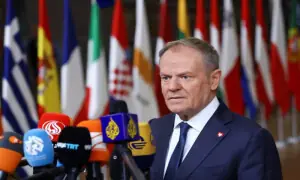
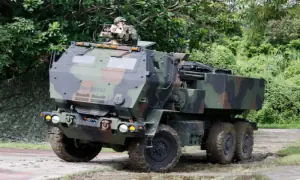
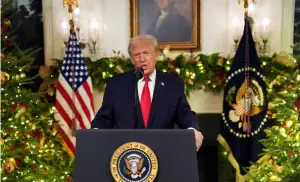

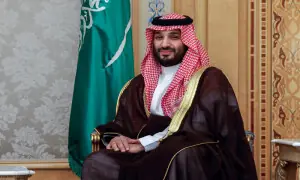
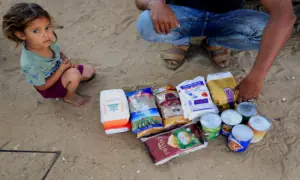

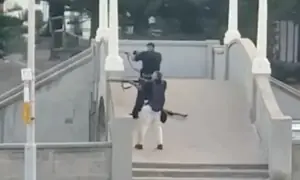

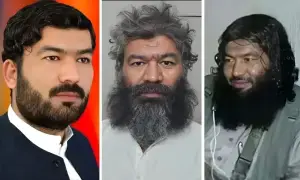
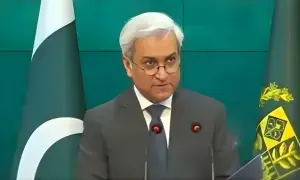

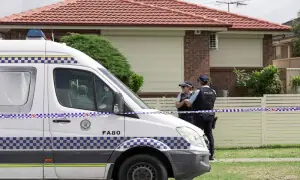
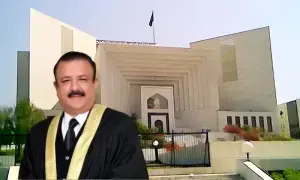
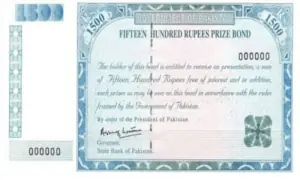

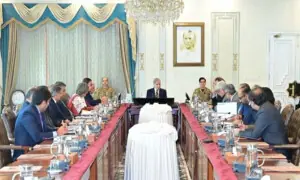

Comments are closed on this story.